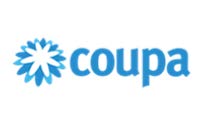PPP Fraud Puts Effectiveness of FinTech on Display
Published June 2020
With the economic fallout from the coronavirus pandemic, many small businesses across the US have struggled to stay afloat. These business owners have found it increasingly hard to pay their employees, further hurting consumer spending on a national scale.
To address the problem, Congress launched the Paycheck Protection Program (PPP) as part of a comprehensive coronavirus stimulus bill (CARES Act) that was signed into law in March. Since then, it has allocated $660 billion to the program.
Small business owners can apply for a PPP loan, which may be eventually forgiven if a substantial amount goes towards employee payrolls or other operational expenses like rent and utilities. Businesses in dire situations can use this lifeline to continue making payroll and stay afloat.
Given the scale of the program and the speed of its execution, lenders have found it difficult to do proper due diligence for every borrower. This has attracted a wide range of fraud activity, such as “loan stacking” where a borrower gets approved for multiple loans at different lenders at the same time. [1]
In cases where there is fraud intent, the borrower may also apply through a business that is no longer operating, has no salaried employees, or even for a business owned by someone else. Small business owners could also attempt to take advantage of the situation by engaging in some form of payroll inflation.
The fraud could be committed at substantial expense to taxpayers: fraud rates are estimated to be as high as 10% to 12% [2], and the average loan was $114,000 as of May 30. [3] Under guidance of the US Small Business Administration (SBA), the agency charged with overseeing the program, it will focus primarily on reviewing loans made in excess of $2 million. [4] With the lack of resources to tackle fraud, a large portion of the fraud could go undetected.
Although schemes like loan stacking could be revealed through a well-designed loan processing system, SBA’s system had a technical issue and so was not able to identify these borrowers. [5] While this was not officially announced, relevant officials and lenders have allegedly been working to recover these loans in recent weeks.
Loan stacking is not a new phenomenon. Some business owners have employed this strategy when they legitimately qualify for more credit beyond what a lender would offer. However, a lender does not necessarily have access to loan information from other lenders, and often have to make their own judgments despite the limitations.
In 2016, ID Analytics* launched the Online Lending Network (OLN) consortium in partnership with several P2P lenders, so that these lenders can be aware of loan stacking cases within the network. Members of the network can also access ID Analytics’ analytics and expertise to limit lending risk.
A recent study by ID Analytics reveals that in mid-March 2020 online lenders had a two-third increase in loan stacking attempts, possibly highlighting the financial burdens faced by consumers during the pandemic. [6]
According to Bloomberg, digital lenders in India have been experimenting with a blockchain-based loan sharing platform under the aegis of the Digital Lenders’ Association of India (DLAI). [7] It was reportedly in the proof-of-concept stage back in June 2019 and the final platform will make it easy for lenders to check if the loan applicant is a stacker.
To address topics such as PPP-related fraud activity, the Office of the Comptroller of the Currency (OCC), which is an independent bureau within the U.S. Treasury, convened a series of “listening sessions” in April. [8] Although the relevant authorities understand the seriousness of the problem, it is not a simple one to resolve. The challenges arising from the limited fintech capabilities has been compounded by technical deficiencies within the SBA’s loan processing system.
A number of people have already been charged with alleged fraud linked to the PPP loans, including a pair from Rhode Island who made loans applications to the sum of over $500,000. [9] In another case, a Chinese national living in NYC applied for $20 million in PPP and other SBA emergency loans at five banks, claiming he had hundreds of employees despite having none. [10]
As lenders ask borrowers to provide additional documentation and the SBA continues its investigation, the potential fallout relating to the PPP fraud may only reveal itself to the fullest extent after a year or two.
*ID Analytics was acquired by LexisNexis Risk Solutions, a global data and advanced analytics leader, for $375 million in January 2020. LexisNexis is part of RELX, a publicly listed company on the London Stock Exchange.
Sources
[2] https://www.americanbanker.com/news/bankers-fear-massive-borrower-fraud-in-ppp
[3] https://www.npr.org/2020/05/04/850177240/not-so-small-businesses-continue-to-benefit-from-ppp-loans
[6] https://cdn2.hubspot.net/hubfs/467391/assets/IDA0228-LNRS-Changing-Shape-Of-Credit-Risk-White-Paper-REV4-WEB.pdf (The Changing Shape of Credit Risk: A study on the initial impacts of the Great Lockdown)



